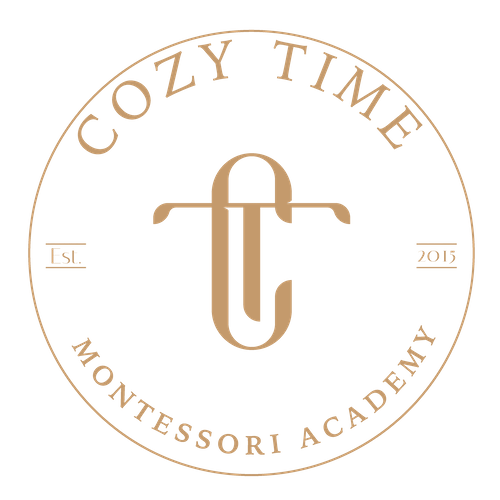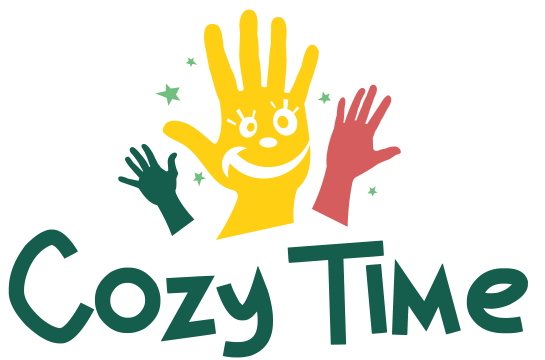Montessori education is renowned for instilling key life skills often summed up as the “4 C’s”: critical thinking, communication, collaboration, and creativity. These four core values are woven into every Montessori classroom experience, helping children become confident, independent learners. It’s a major reason why Montessori schools have flourished – Canada’s first Montessori opened in 1912, and today there are more than 500 Montessori programs across the country (including here in Vaughan, Ontario). Below, we break down each of the 4 C’s and how Montessori nurtures these abilities in children.
Critical Thinking in Montessori
Montessori classrooms are carefully designed to spark critical thinking from an early age. Instead of rote instruction, children get hands-on materials and open-ended tasks that encourage them to solve problems and analyze information on their own. Teachers serve as guides rather than lecturers – they observe and step back, allowing kids the time and space to figure things out independently. For example, many Montessori activities have a built-in “control of error”, meaning the materials show children when a mistake is made and let them self-correct it. This approach turns mistakes into learning opportunities and strengthens a child’s ability to think clearly and logically about challenges. Whether it’s a toddler working a shape puzzle or an older child conducting a simple science experiment, Montessori students learn to question, hypothesize, and persist until they find a solution. Over time, they develop keen problem-solving skills and analytical thinking that form a strong foundation for lifelong learning.
Communication Skills in Montessori
Effective communication – expressing oneself and listening to others – is at the heart of the Montessori philosophy. In Montessori settings, children are encouraged to share their thoughts, feelings, and ideas in a respectful environment. From day one, even the youngest toddlers learn basic “Grace and Courtesy” lessons (unique to Montessori) that teach polite language, empathy, and respect. As children progress, Montessori classrooms include group activities like morning circle time, storytelling sessions, and show-and-tell, which give each child gentle practice in public speaking and active listening. Teachers model respectful dialogue, and often the class will create simple ground rules or agreements together for how to treat each other kindly. All of these experiences help Montessori children build clear communication skills – they learn to speak with confidence, listen without interrupting, and consider others’ perspectives. By routinely interacting with peers of different ages and personalities, Montessori kids also gain emotional intelligence and empathy, learning how to work through conflicts or express needs with words. In short, a Montessori child is developing the social and communication skills that will benefit them in school and beyond.
Collaboration and Community
Collaboration is a natural outcome of the Montessori approach. Unlike traditional single-age classes, Montessori uses mixed-age classrooms, typically spanning a three-year age range (for example, ages 3 – 6 in one group). This structure creates a family-like learning community where older children eagerly help and mentor younger ones, and younger kids learn by observing the older role models. Working together is built into daily activities – you might see a group of children collaborating to build a big puzzle or caring for a classroom plant. Such interactions teach kids how to work as a team, share responsibilities, and respect each other’s contributions. Montessori guides facilitate cooperative projects (like group art, science experiments, or even class gardens) that let children practice problem-solving together rather than in isolation. The classroom environment itself encourages a sense of community: children take turns with materials, tidy up together, and jointly uphold class rules. Through these experiences, Montessori students develop strong collaboration skills – they learn cooperation, leadership, and empathy in a very organic way. These habits prepare them for later life where teamwork and social skills are crucial. In essence, Montessori kids understand how to be part of a community, helping and learning from one another for the good of the group.
Creativity and Imagination
Montessori education places a high value on creativity, viewing it as much more than art projects – it’s a way of thinking. In Montessori classrooms, children have the freedom to choose activities and explore their interests, which naturally nurtures their creative mindset. The materials are often open-ended, meaning there isn’t only one “right” way to use them. A set of wooden blocks, for instance, can become a tower one day and a pretend city the next. This kind of open exploration encourages children to think outside the box. Montessori students are also encouraged to pursue their own ideas – after a lesson, a child might decide to draw a picture, build a model, or tell a story to demonstrate what they learned. Mistakes are treated as part of the process, not something to fear, so children feel safe experimenting and trying novel approaches. This supportive atmosphere helps kids develop originality and confidence in their own ideas. Montessori classrooms do include arts, music, and imaginative play as important elements of the curriculum, but creativity in Montessori goes further: it’s about approaching any problem or task with innovation and curiosity. By giving children freedom within clear boundaries, Montessori lets their imaginations soar. The result is students who not only enjoy creative pursuits like art and storytelling, but who can also apply creative thinking to academics and everyday challenges.
Why the 4 C’s Matter for Your Child’s Future
The “Four C’s” of Montessori – critical thinking, communication, collaboration, creativity – aren’t just buzzwords. They are widely recognized as essential 21st-century skills for success in school and life. Montessori education intentionally cultivates these abilities every day, and the benefits for children are profound. Together, the 4 C’s help empower children to become adaptable, resilient, and self-motivated learners, equipped to thrive in our ever-changing world. A child who can think critically and creatively will approach new problems with confidence. One who can communicate and collaborate effectively will build positive relationships and work well with others. Montessori parents often observe that their children grow to be curious, confident, and capable – eager to explore new ideas and respectful when engaging with others. These traits set the stage for success far beyond the preschool or daycare years. In fact, many educators note that qualities like self-regulation, teamwork, and creativity (all fostered by the 4 C’s) are as important as academic knowledge for later success. By prioritizing these core skills, Montessori programs prepare children not just for the next grade, but to become lifelong learners and thoughtful, well-rounded individuals.
Tips for Parents: Encouraging the 4 C’s at Home
Montessori’s principles don’t have to stay in the classroom – parents can foster the 4 C’s at home with some simple practices. Here are a few tips to reinforce critical thinking, communication, collaboration, and creativity in your child’s daily life:
- Promote independence: Set up parts of your home to be child-friendly. For example, keep everyday items (like snacks, cups, or art supplies) on low shelves so your child can reach them. A child who can do things for themselves gains confidence and problem-solving skills.
- Offer choices within limits: Rather than directing every activity, let your child make age-appropriate choices – for instance, “Would you like to wear the red shirt or the blue shirt today?” Giving two or three options empowers kids to think for themselves and communicate their preferences, while you maintain reasonable boundaries.
- Encourage hands-on help: Involve your child in real-life tasks like cooking, gardening, or setting the table. These activities build coordination and invite kids to work alongside you (collaboration) while also sparking curiosity and conversation. Ask open-ended questions like “What do you think will happen if we mix these ingredients?” to prompt critical thinking.
- Celebrate creativity and curiosity: Provide open-ended toys and materials – such as building blocks, craft supplies, or dress-up costumes – that inspire imaginative play. When your child comes up with a new idea or artwork, show interest and ask them to tell you about it. This reinforces that you value their creativity and encourages them to keep exploring new ideas.
- Model respectful communication: Children learn communication skills by watching adults. Take time to listen attentively when your little one is speaking, and respond with patience. By demonstrating empathy, active listening, and polite language in your family conversations, you teach your child how to express themselves and respect others – just like in a Montessori classroom.
By practicing these habits at home, you complement the Montessori approach and help your child grow in all four C’s in every environment. Consistency between home and school can truly reinforce their independent thinking, social skills, and love of learning.
Montessori in Vaughan: Embracing the Four C’s
Choosing a Montessori program means choosing an education that goes beyond ABCs and 123s. It’s about raising children who can think critically, work well with others, communicate clearly, and approach life with creativity and confidence. Here in Vaughan, Ontario, Cozy Time Montessori Academy is proud to embrace the 4 C’s every day in our classrooms. We see the results in our students – they become curious, self-assured, and collaborative learners who are excited to come to school and explore new things. By focusing on these core pillars of development, we aim to nurture well-rounded individuals prepared for the future’s challenges and opportunities. Montessori’s 4 C’s truly help lay the groundwork for children’s success – not only in academics, but as caring, capable citizens of the world.
In summary: The 4 C’s of Montessori – critical thinking, communication, collaboration, and creativity – are fundamental strengths that Montessori education cultivates in children from a young age. These skills reinforce each other to support your child’s holistic growth. Whether in Vaughan or anywhere else, a Montessori program that prioritizes the 4 C’s is giving children the tools they need to thrive as learners today and leaders tomorrow. By encouraging independence, empathy, teamwork, and imagination, Montessori truly prepares children for life – which is why it remains such a popular and respected educational choice for families around the world.





